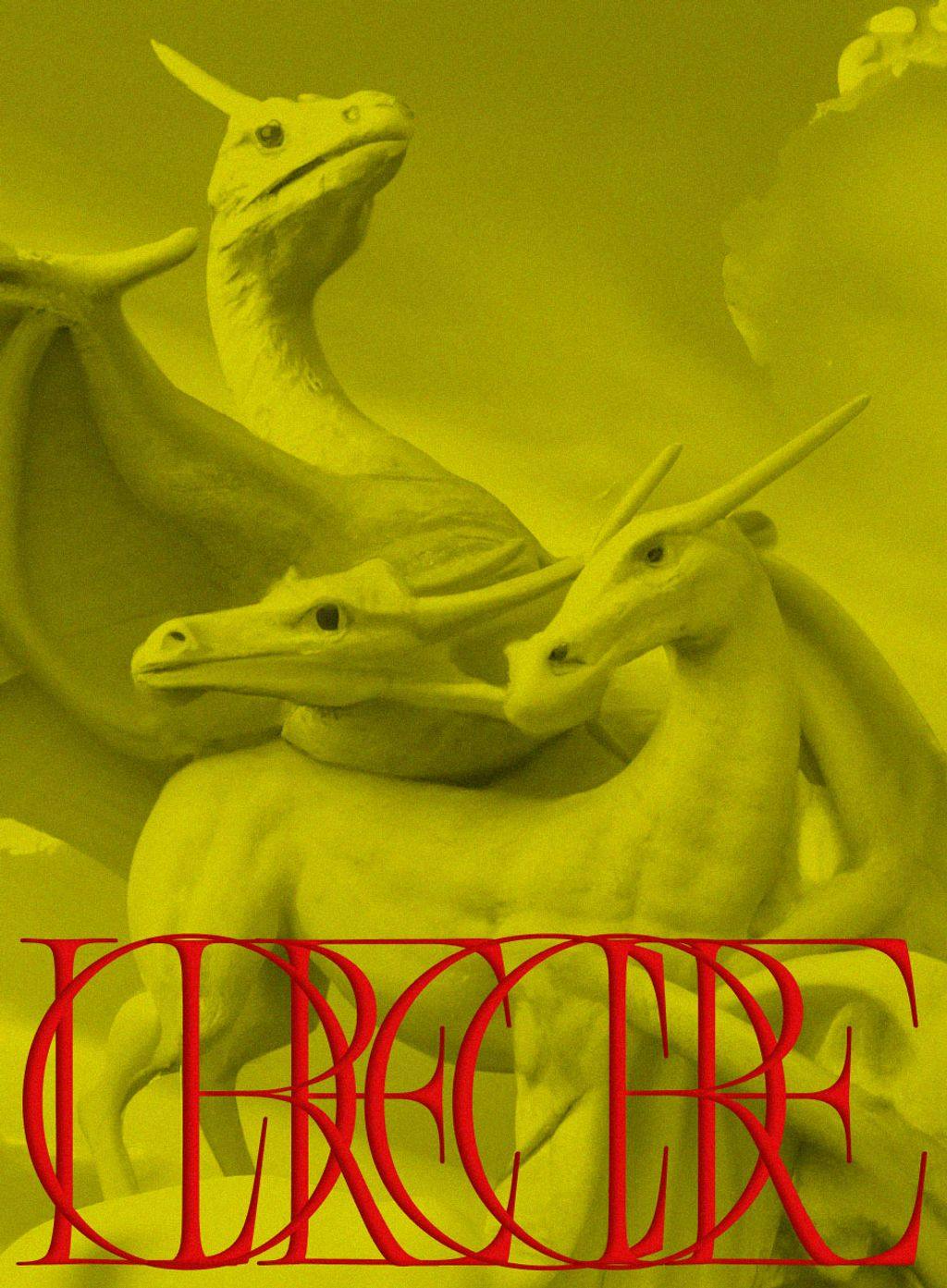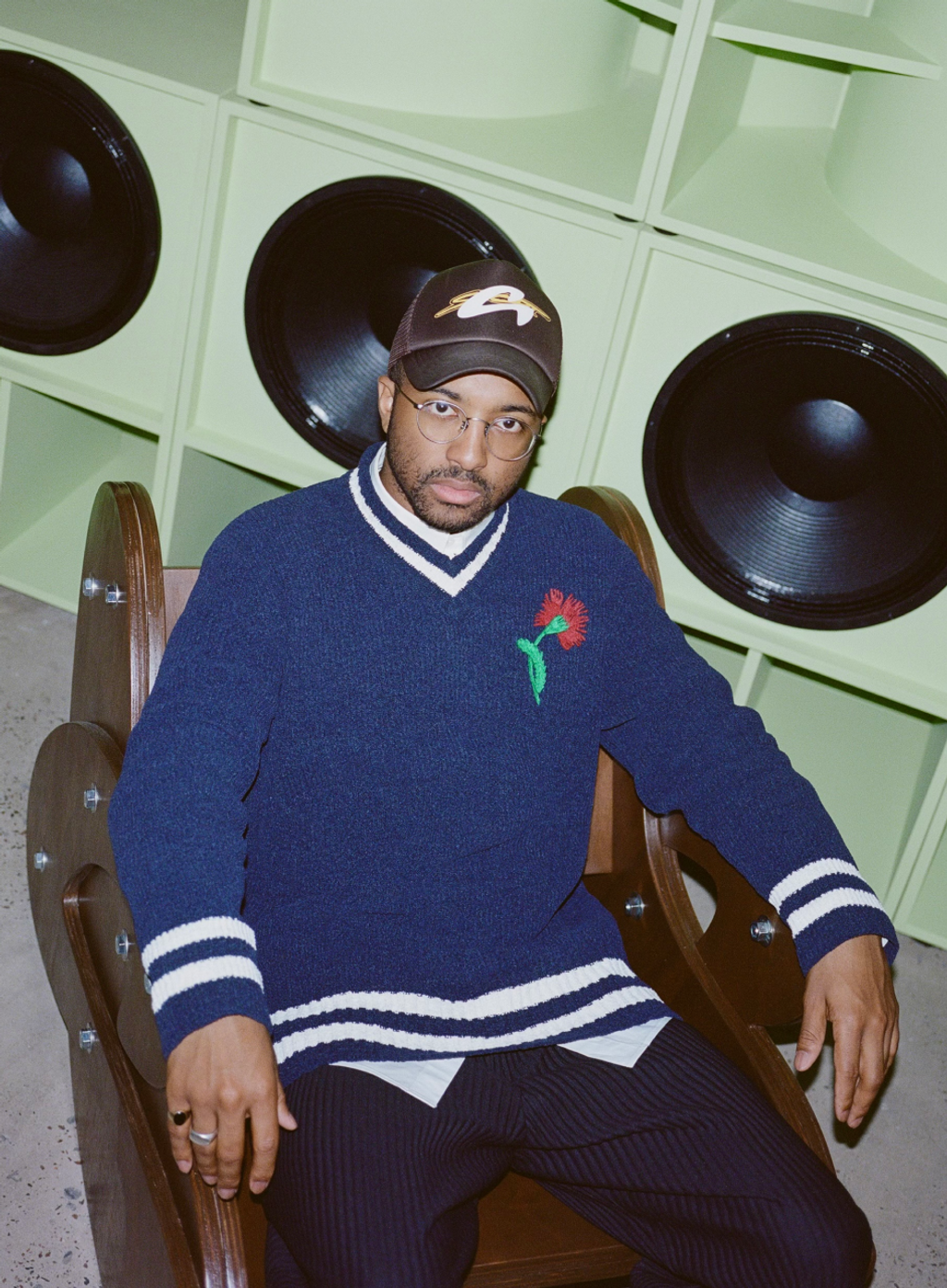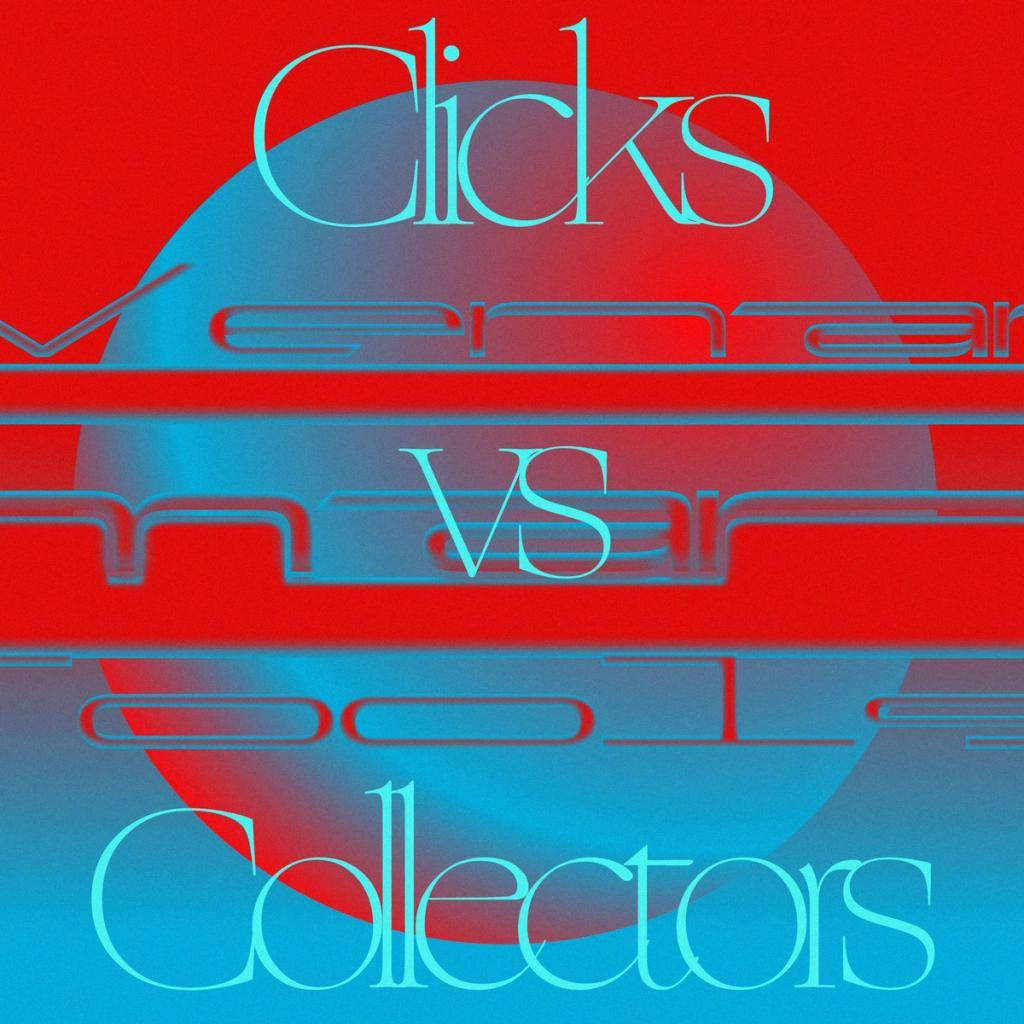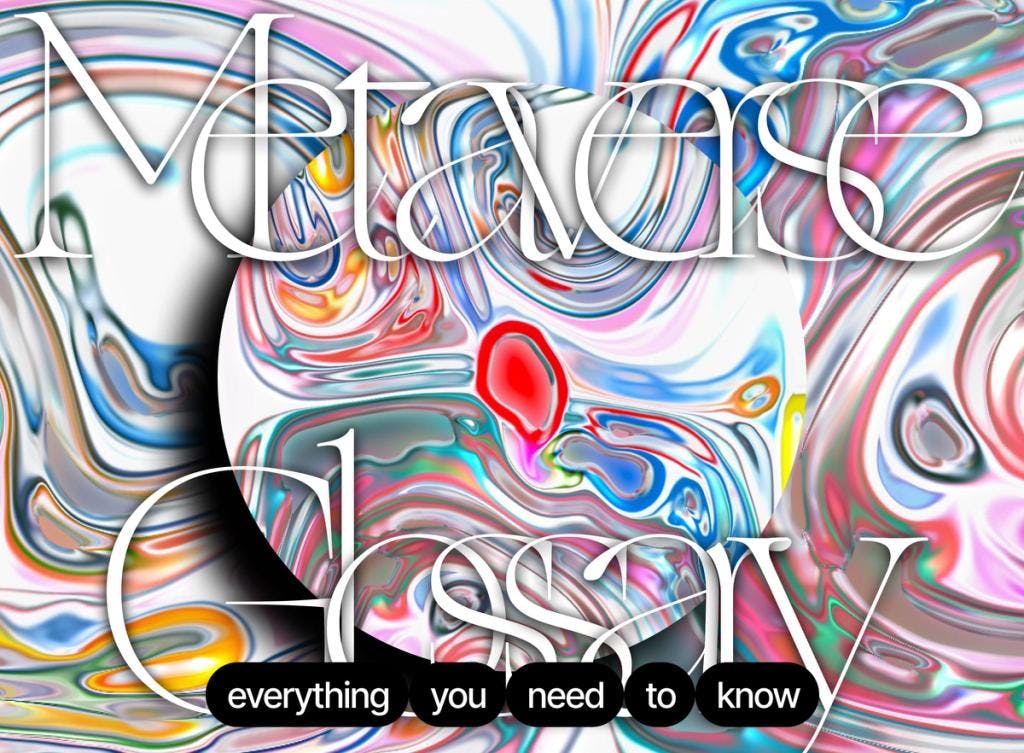



OnSharedMindsandHumanStocks:TheLibermanBrothers
On Shared Minds and Human Stocks: The Liberman Brothers
Daniil and David Liberman on redefining human value and financial time travel.
Daniil and David Liberman are brothers, best friends, and business partners. Out of a shared apartment in the thick of Silicon Beach, they own and operate The Libermans Company, a Delaware-registered corporation, along with their siblings Anna and Maria. In 2021, the four siblings all pledged to devote the next 30 years of their “entrepreneurial output” to the corporation and solicited outside investors, with the hope to soon become publicly traded and the promise of returns on the future profits generated by the businesses they create along the way. So far, LibermansCo has launched two ventures, Product Science and Humanism, focused on harnessing AI to optimize codebases and investing in speculative individual potential, respectively.
Speaking with Daniil and David is uncanny—one often engages the shared mind between them. They often think and speak together, interrupting and finishing each other’s sentences, in a fragmented yet charismatic style. They share an email account, social media profiles, and an apartment. Ironically, while they represent a unified entity, their venture invests in and celebrates the unique potential of individuals.
The brothers’ path from Russia to Southern California is one of serial entrepreneurship. Their parents, Efim Liberman and Svetlana Minina, were state biophysicists who notably proposed that the human brain is a quantum molecular computer, processing information at the cellular level. In Moscow, where they grew up, the brothers founded Sibilant Interactive, a MMO game development studio, followed by Concept Space, a CGI animation studio that produced Mult lichnosti, a popular cartoon show that satirized public figures. After a move to the US, they started a fintech company called Frank.Money, followed by augmented reality software company Kernel AR, which was acquired by Snap. (The Liberman siblings, including Anna and Maria, developed Snap’s popular Bitmoji avatars.) They left Snap in 2021 and soon after started LibermansCo.
The Libermans recognize AI’s transformative power while remaining weary of its destructive risks, and the importance of channeling its value for societal benefit. They are futurists committed to human potential, envisioning a world where poverty and inequality are eradicated. Similar to LibermansCo, their venture Humanism serves as a platform that empowers investments in individuals’ future financial output through the creation of a “PersonalCo.” The company is currently soliciting founders with experience starting at least one business to sell a portion of their equity, maintaining control while distributing dividends to investors for personal use. The Libermans believe that their unconventional investment models can help bridge the generational wealth gap and contribute to a more equitable and prosperous world.
In a candid conversation with ZINE Contributing Editor Blaine O’Neill, the brothers share their thoughts on AI, “people corporations,” digital gold, and time travel through wealth redistribution.
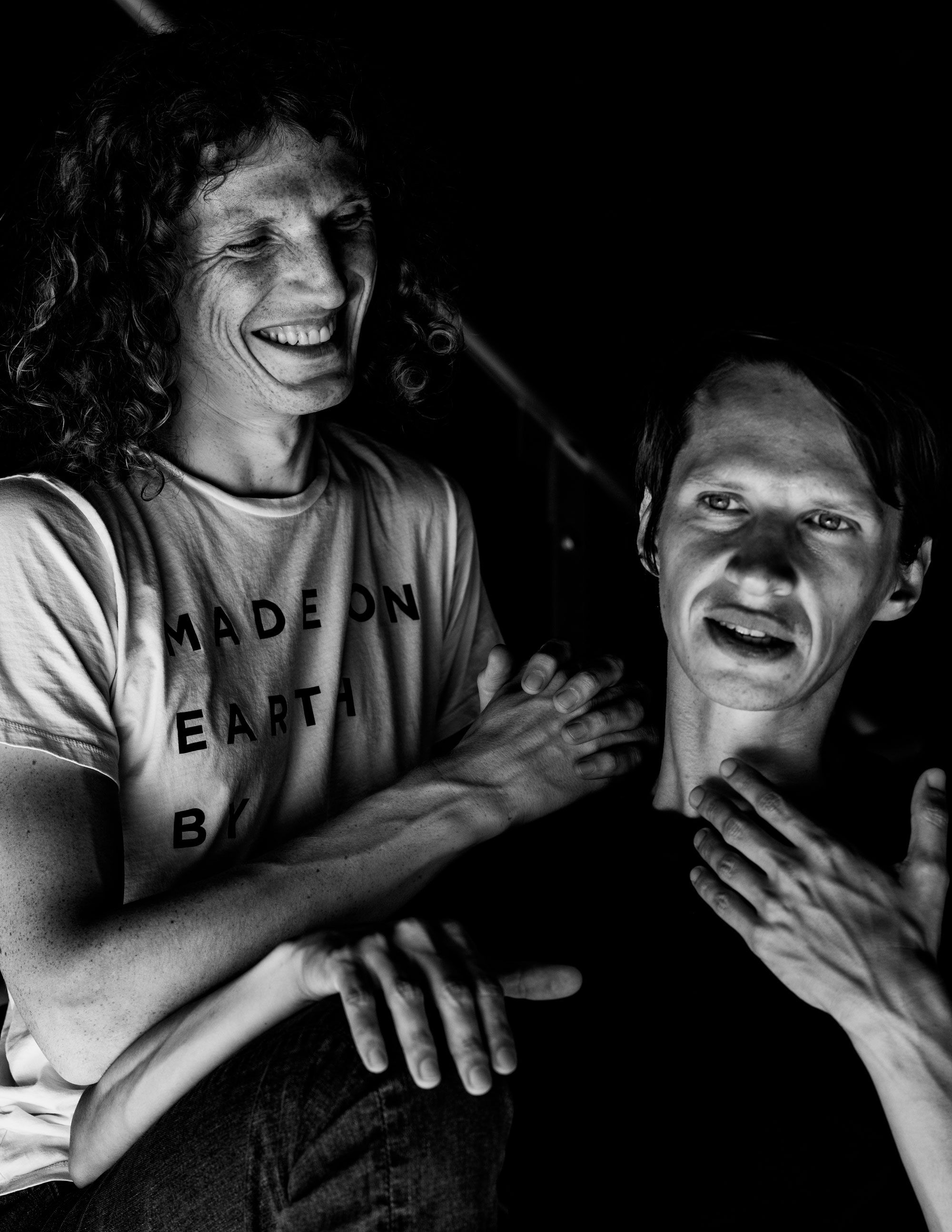
Blaine O'Neill (ZINE): 2023 is going to be a year of significant developments in AI. When GPT-4 is released, I think people are going to be pretty freaked out. [This interview took place at the end of January, before OpenAI released GPT-4 on March 14, 2023].
Daniil Liberman: AI is going to be integrated a lot in our day-to-day life, even without us knowing . As always with technologies, they conquer the world much faster than we could have expected.
David Liberman: We try to explain to all our friends who ask us about OpenAI that we believe, at least for the next 10 years, it is about productivity improvements. It is not something that is replacing you completely but something that can actually empower you to be much more productive. When you write emails or presentations or podcasts, this tool can actually allow you to work much faster. We explain to our friends that they actually should train their employees to use this tool. A marketing, design, or research department can utilize this tool to make their work more effective.
Daniil Liberman: AI will become a service that everyone will be using all the time.
David Liberman: For example, in our recent piece in The New York Times—we first wrote an outline of what we wanted to say, and then we asked GPT to write an option based on it. Through iterations, it started to become better and better and better. Even though this is a conversation that goes through multiple stages, it's still faster than if you do it directly.
The same happens with the design. If, for example, I try to use DALL-E or Midjourney to generate pictures, I think that I created something great, but artists will definitely think that it is poor quality. But when a really great artist uses it and directs the conversation towards better and better results, the picture can be of a really interesting quality and interesting design.
Daniil Liberman: You need to understand what you are asking for. Even if the machine can do it for you, you still have to understand what to ask. In Photoshop, there are going to be thousands of different features to change the color, the lighting, the shadows, the different spectrums and effects applied on top of the picture. You still have to understand this and you have to know this. Eventually, the AI will get to the point where it will be able to predict and ask and suggest to the user who doesn’t know what to do.
David Liberman: But so far, at least right now, it is a tool, and as soon as you use it as a tool, you can see that your work can be done much faster than it used to be.
BO: After the conversational AI paradigm, what comes next?
Daniil Liberman: We think a lot about the concept of a memory temple. How can AI help us reach our own memories faster? Imagine AI contextually remembers everything you say, remembers everything you saw (because it’s actually somewhere in your glasses or something). Because we will have the contextual awareness like video or audio, the language model will put this data into context and build a memory temple of everything we saw and heard that will then allow us to access those memories.
This will change a lot in terms of trust. In terms of dealing with agreements and legal practices. Life can change dramatically in terms of factual truth.
BO: Relationships too.
Daniil Liberman: Relationships too. Honestly, I personally believe that the coolest thing we can expect in the near future is a diary/personal therapist, which can be with us always and which can tell us what it understands from our neurolinguistic programming. We say something and we don’t even understand that it actually expresses some emotion or feeling, but if a professional therapist was listening to us, they can say, “Are you upset about something?” Because they can hear it in your voice.
BO: I was thinking about labor. On a personal level, AI helps with productivity for workers who are getting paid for their education, training services, and brain power—doing work like coding, writing emails, making executive or strategic decisions, working in a customer service context, etc. What other areas of labor beyond the purely cognitive do you think will be the first to be affected?
David Liberman: Salespeople will be affected. Already there are startups that provide analytics for what the most effective sales pitches look like in order to train other salespeople. Then, with physical labor, we also should understand that the biggest advance in robotics won't be in hardware but in software. OpenAI not only works on linguistic chatbots but also on robotics controls. It is interesting—all this time, most of us thought that mechanical labor would be...
Daniil Liberman: Replaced first.
David Liberman: But actually, what we see right now is intellectual labor being affected much more. Step by step, all verticals of the markets will be affected the same way. It's just a matter of time.
Daniil Liberman: Imagine builders on a construction site. What will come earlier than robots will be AR visual and audio AR helmets, that suggest action to do next, provide quick training, etc. As soon as you are close to a mistake, the system can suggest what to do next.
David Liberman: That is also what’s next: the ability for the camera to recognize the context of a picture. Real AR will be the camera understanding its context and when the content can be put exactly in the right place based on the context. This is quite sophisticated. The level of recognition with today's ARs/AIs is not there.
BO: You started the company Product Science, which uses AI to create a metric for code and to identify inefficiencies and flaws in code.
David Liberman: Yes. We find places where the code is not optimal. The truth is that to find these things, you just need to process so much data. You need to read millions of lines of code. You need to...
Danii Libermanl: Match it with each other.
David Liberman: That’s what we experienced at Snap. It is just too much data and a computer will definitely solve this task much more easily than we can. If we can actually provide insights to engineers as to where their inefficiencies potentially are, then they can apply their knowledge to write optimal code.
Daniil Liberman: The tool we built doesn’t fix the code but shows you the very places where the problem is or could arise.
BO: Does the tool implement pattern identification on the code itself or do you arrive at these insights through debugging and runtime methods?
David Liberman: A combination of the two.
Daniil Liberman: We analyze the code and we create a much larger model and picture all possible pathways. Then, we debug the existing build, the build which was done from this source code, look at how it was executed on a particular device. We then combine this massive model with the results to understand where it actually goes within the possibilities which we previously predicted.
David Liberman: It is similar to previous advances of OpenAI when they took ImageNet and combined it with their language model. Why? It appears that if you take the context of language and combine it with picture recognition you get much better results.
Daniil Liberman: In essence, language was invented to describe what we see. The way we define phenomena. Now, AI can learn visual recognition patterns from the language model. When combined, it possesses the magic of intelligence.
BO: Is there any part of this current wave of automation and AI that you're more hesitant about fully embracing?
David Liberman: Financial impact on the world. What we like, for example, about OpenAI is that they created this cap profit model. They are able to attract investors. The employees have capital incentives with the shares of the company. But if you imagine how these technologies can affect the market and how they can extract value from the market, if there isn’t any cap, it’s unlimited. It will just eat everything.
Daniil Liberman: They are also concerned with moral implications. People always ask us what we could have done better with AI. What should give us pause is thinking about how people’s lives are going to be affected—whether the value extracted from this technology can actually be beneficial to society.
David Liberman: The people who develop this type of technology should take responsibility for the consequences.
Daniil Liberman: If in 10 years AI replaces all the jobs, then no one will have to do anything because all the products will magically be made, the oceans all magically cleaned, the energy all magically extracted from the sun. We are not there yet.
BO: How do you define intelligence and think about it in your work?
David Liberman: There are so many different definitions of intelligence. By some definitions, ChatGPT is definitely already intelligent. It can acquire knowledge, it can operate with its knowledge.
Daniil Liberman: It is capable of combining opinions and realizing them. This is what it can already do quite well.
David Liberman: The next stage for AI will be actually generating new knowledge. AI making scientific discoveries. Or perhaps this system can invent new styles of art. Yes, we’ve seen that it can be proficient in replicating style, but it'll be able to actually generate new types of style.
Daniil Liberman: The highest degree of intelligence is that which creates new meaning, creates new knowledge, discovers something which wasn't there before.
With every new technology, we have to think about consequences, and it requires time for us to check whether this particular new fertilizer is not going to cause cancer, or this particular new drug is going to have any side effects, or this particular new concrete will be cracking. It all requires time and human attention, intelligent attention. Even if AI actually starts generating new knowledge and new meaning faster than people expect, we still need to consider all the possible consequences. Maybe the AI itself could actually help us adapt faster by simulating all possible consequences and predicting what could go wrong.
BO: Let’s pivot to humans. In 2021 you devoted a 30-year period of time together with your sisters Anna and Maria, to The Libermans Company. Why is it called a people company?
David Liberman: In the modern environment, corporations still have quite a significant advantage over individuals. Capital is much cheaper for corporations. More abundant.
Daniil Liberman: We try to use this same model but extend it back to individuals.
David Liberman: If we look at the corporate world, most of the companies you see today would never exist without venture capital.
Daniil Liberman: They would not achieve the extent of greatness, efficiency, scale, and productivity we see right now. So imagine using the same model with individuals. It could lead us to a [world] where there are no poor people. No people without education or purpose in life. Because if you apply the same logic—that there is a potential for every human being—and provide resources to actually create personal wealth, then you provide people with the capital to create it, they can create it.
David Liberman: That’s why we decided to build a framework so that individuals can get the same type of access to capital using existing structures. LibermansCo is a corporation. It’s a holding company for all the projects which we’ll create in the next 30 years. Because of this commitment, there is additional statistical valor in the potential of this company. And that’s why we attracted attention from investors—because they see that we can actually build a prediction model, and use this prediction model to actually balance potential financial output.
Daniil Liberman: This deal is only about financial output. It’s nothing about our personal life or our emotions or how we’re going to make money in the future. It’s about what we will make and how much of the financial output we will have. Investors buy a minority to stake in this potential future.
BO: It’s venture-agnostic. A potential investor in LibermansCo is investing in the four siblings and your potential value, but they’re not investing in one business proposition. It allows you to develop ideas, as opposed to committing to just one. Is the idea that after you’re successful in your first or second round of funding, you can pursue other, better, perhaps riskier ideas?
Daniil Liberman: The most successful entrepreneurs we know never, ever focused on one thing. They always have side projects. We specifically didn’t focus on our main ideas because we wanted to be able to easily switch to something else.
BO: Is LibermansCo investing in people, or is LibermansCo developing a company that will invest in people?
Daniil Liberman: This is a ladder. LibermansCo is us. It is whatever we create. And part of what we want to create is a vehicle that will enable these new types of securities, that will enable these new types of investment.
David Liberman: And this company is called Humanism.
Daniil Liberman: We started Humanism early last year. Since then, we are on trajectory to start investing in more people. This year we will likely invest in several thousands of people. We already raised over 15 million dollars to invest in people, and we plan to invest 50 this year alone.
David Liberman: We tried to invest in six individuals. We realized that we definitely have a product here and we want to scale it so that more individuals can experience the same.
BO: So it started with six people as a trial that worked well, that was the origin of Humanism?
David Liberman: Yes.
BO: How are you identifying potential investments in terms of people? And then, once you’ve identified a potential person, how are you doing the math?
David Liberman: For each potential investor we meet, we ask who they would want to invest in. This creates a network of references. Those are the people we want to invest in too. That’s the first criterion. The second criterion, when we see a potential candidate, we try to understand whether they really want to keep building.
Daniil Liberman: It’s like with scientists, doctors, or artists; they want to do [their work] until the end of their days. With entrepreneurs, it’s the same. You have the joy of actually creating. Then we project, based on the statistical chances, if this particular company will be successful or fail over the course of years, and how many years have to be spent on failures and successes. What are the chances for any particular founder to achieve some particular financial results over the course of 30 years, etc.
David Liberman: Then we build the risk rate for cash flow for the next 30 years, and then we calculate the net present value of the risk weight and cash flow. The same way you would do it for all companies, but in our case, we have much more data.
BO: Is this how you determined your own value for LibermansCo as well?
David Liberman: Yes. When we did things ourselves, we used the same formula. It was not as advanced as what we used today. It was a bit more simple. But still, we presented this calculation to investors, and said we are not just taking numbers, think of it as a formula.
Daniil Liberman: And we openly share the formula with investors. Moreover, we gave a significant discount to investors initially when we started, because we knew that we were the first case in the entire history of Humanism.
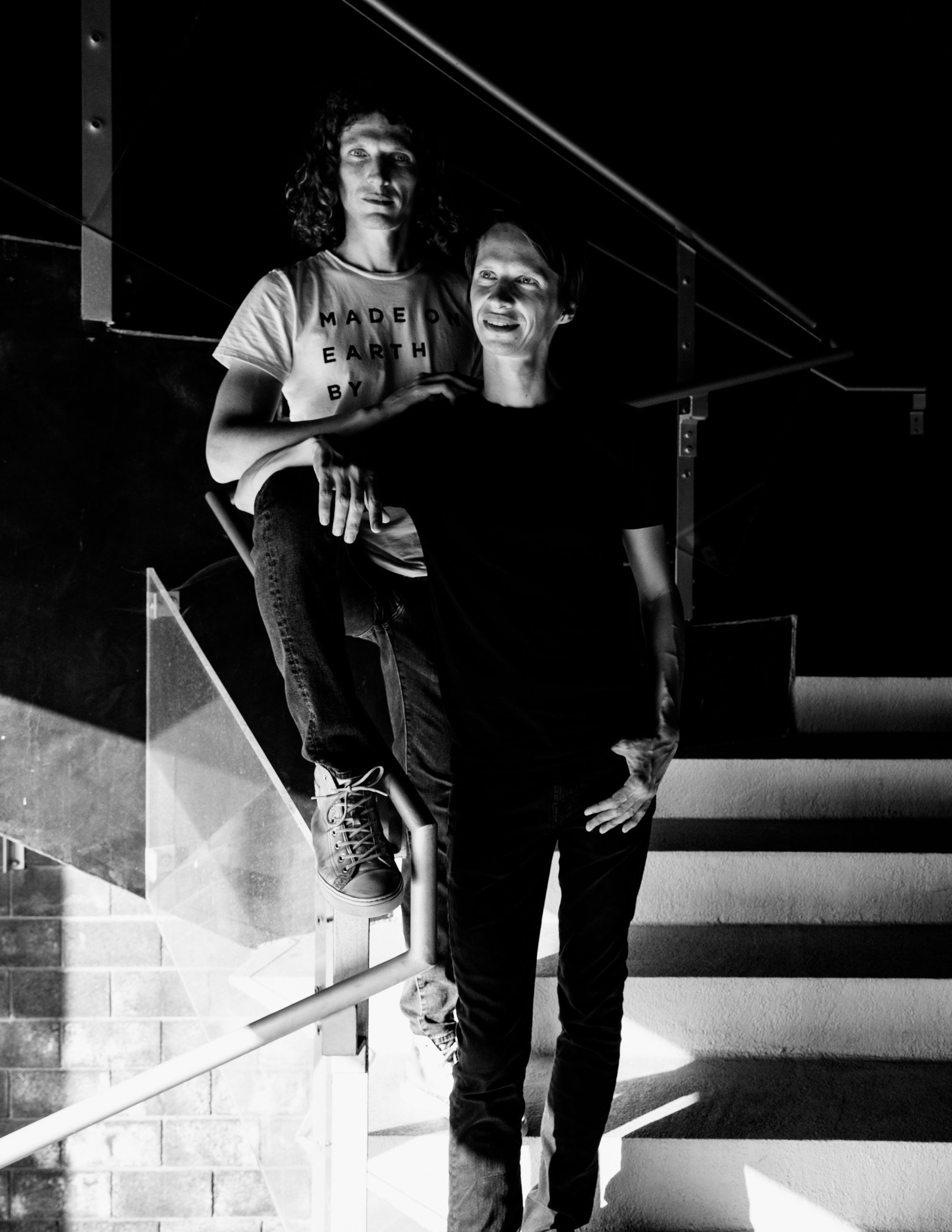
BO: How would you respond to someone who might say that you’re putting a price on people? That you’re financializing someone’s self-worth or identity?
David Liberman: It’s not about emotion or identity. It is explicitly about financial output. Yes, you could say that we’re putting a price on a person, but in the same way as you would with a salary. When you’re hired by companies, your worth is put into specific buckets. Like L2 engineers, L3 engineers, L4 engineers. This leads to more equality in terms of pay.
Daniil Liberman: People in politics are paid salaries, even if it’s a nonprofit. We see the executives and leaders of the largest nonprofits are paid quite well. But with us, if we talk about 5% of your 30-year future, we’ll only buy what is two weeks a year of your labor for the next 30 years. If you think through this perspective, we’re only talking about a marginal financial output and labor exchange.
BO: How do you feel about universal basic income and broader programs that are being proposed in tandem with the Humanism model?
David Liberman: People experiment with different models. What we personally dislike about the current discussion around UBI is that the discussion doesn’t really include the proper model of how this UBI would be paid. I’m already not pleased with the way the government spends money.
Daniil Liberman: Why would I expect them to do a better job with UBI? We need a system in place that will guarantee equal access and equal opportunities, and reward those who are the most talented and active in creating value for society and for the market.
When we try to explain to people what’s going on with the economy, we show them an example of people in Russia getting really tiny pensions across the country. That’s a governmental-paid pension. But even though it’s tiny, it’s still 20% of the entire governmental accumulated budget. So all of the money which the Russian government collects in taxes from gas and oil is only enough to cover a miserable pension for, say, a nurse in Russia.
David Liberman: We can see that our model can deliver much more to people in terms of a safety net and opportunities. Because it’s not only about a safety net, it’s about being able to take risks and being able to actually extend your opportunities.
BO: Are there any historical relationship models that you’ve referenced or thought about in terms of this people company model? Do you think about apprentice-guild relationships between younger generations and older generations or the role that a patron would play in a society with artists?
Daniil Liberman: Actually we spent several months brainstorming with the team on what the analogies are and how to introduce our narrative to a broader audience.
David Liberman: In general: education systems. Free education for kids.
Daniil Liberman: One of the most frequent hesitations we’re getting from people who we discussed the idea of Humanism with is, if people don’t have struggle and strife, what drives them to achieve more? Nothing in the history or current state of society proves struggle drives [success] and lots of statistical and data points say the opposite. The first one is free education. We can clearly see that free education is actually so much better than the absence of education. And free is not free. It’s one of the largest parts of the US budget.
David Liberman: Actually, it has been tested: countries that applied free education earlier than others achieved more.
Daniil Liberman: If you look at billion-dollar tech companies, the majority of them were founded by individuals who never struggled, who were from upper-middle-class families, who had their education paid for by their parents. That’s who achieves the most financial output. Clearly, having access to capital earlier on in one’s career helps one to achieve greater results.
BO: Would you want to talk a little bit about the generational wealth gap and how the Humanism and people company models could be considered a form of time travel?
Daniil Liberman: This is the major problem which we’re facing, which society globally is facing right now. What we see right now is that the older generations, who are running and own businesses, are complaining about the younger generations; Gen Z being lazy or not wanting to work or being snowflakes. Offensive statements like that. Every time we hear that, we see that people just don’t understand what’s going on. It’s not about this generation being lazy, but about being betrayed. They don't see why they have to work more to get less compared to all the generations before them. They feel betrayed and failed by the society, by the system, by the state, by their investors, by their employees, by everyone who is older than they are. The generations before were more well-off financially, could have paid for their education without getting a huge student loan, could…
David Liberman: Afford a house.
Daniil Liberman: Get a mortgage by age 30. None of this is available to Gen Z. We should understand that even a down payment is inaccessible for them in terms of how much money they have to save before they’re even capable of starting a mortgage. The gap which we are experiencing right now is of such a drastic caliber that it will slow down economic growth. In the next decade we’ll see how badly it will affect everything.
David Liberman: We want to concentrate our efforts towards change peacefully and through new market-based tools. What we propose, it’s not actually about a relationship with investors, it is actually about a relationship with yourself in the future.
Daniil Liberman: Metaphorically, this is your relationship with your own self in the future who got access to capital earlier on. What if you could send yourself money 30 years from now? It’s success in the future.
David Liberman: We did the same exercise with ourselves. When we look at ourselves 20 years ago, we think it would be great to have the opportunity to send our current wealth back into the past.
Daniil Liberman: Some might say we’re spending money not on what will bring us more wealth, but what will bring us a better world. We can see from the market that it’s the same thing. What can bring you a better world will bring you higher wealth. Right now, money can time travel to the future. We are trying to send money into the past.
David Liberman: For example, when you are young, you imagine your best future self. You tell yourself the story of this self to other people. Your future story. The story can travel through time. It can help you accelerate and be successful.
Daniil Liberman: As a teenager, you tell the stories of yourself. Then society presses you to be more realistic. Only a certain few can sustain those sparks from childhood and create their vision of their future. Never lose it. We would say that if you had a childhood friend with whom you were dreaming together, you have a much better chance of retaining this spark. A better chance to actually achieve what you envisioned in childhood. Everyone can do this. Everyone has it.
BO: Speaking of children, what was the last thing that you learned from a child?
Daniil Liberman: Recently a much younger individual said something like, “My business is going to be cross-galactic in 30 years from now,” and I was like, “I’m not sure that is possible...like trans-solar systems?” And then I stopped myself. Why not? Why limit myself?
David Liberman: Imagination. We have a friend with a 12- or 13-year-old and we’re like, “Wow. These human beings, they will definitely make the world much better.”
Daniil Liberman: Honestly, they teach us every day. They are better than us.
David Liberman: Every generation is better.
Daniil Liberman: Faster, smarter, kinder. Kinder and more empathetic. Therefore, this is what we learn from the youngest generation: if we invest enough resources into them realizing their potential, we will get so much more than we can from ourselves.
Mint the ZINE x The Liberman Brothers NFT






